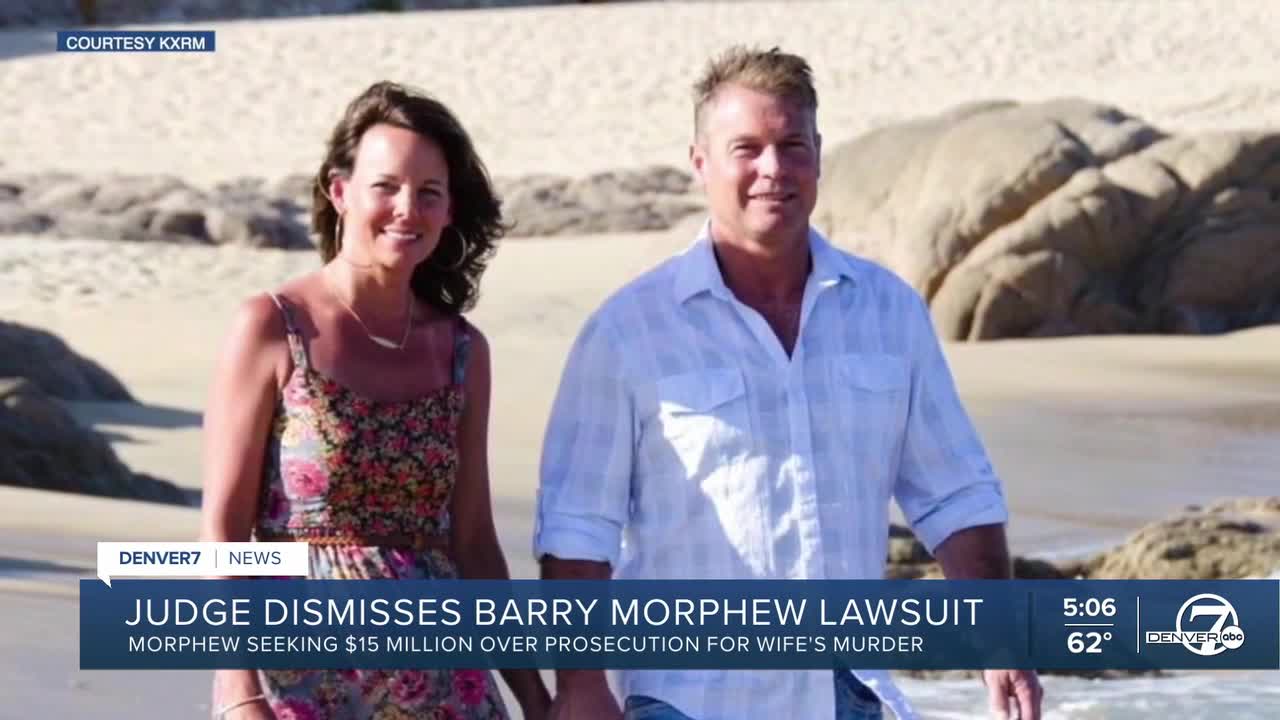A Colorado man’s malicious prosecution lawsuit has been dismissed, with the federal judge saying prosecutors acted badly in his case, but authorities still had enough reason to arrest and charge him in his wife’s death four years ago.
Barry Morphew filed a lawsuit against Chaffee County, its sheriff’s department, District Attorney Linda Stanley and local and state investigators seeking $15 million in damages in May 2023, a year after the charges alleging he killed Suzanne Morphew in May 2020 were dismissed. The lawsuit alleged investigators fabricated evidence, engaged in a conspiracy to charge him, conducted a reckless investigation, didn’t follow up on some evidence and withheld exculpatory evidence from the defense.
Morphew was arrested in May 2021, before Suzanne Morphew’s body was found.
“In hindsight, it appears everyone involved now agrees that Mr. Morphew should not have been arrested, at least not at that time,” U.S. District Court Judge Daniel D. Domenico wrote in his order Tuesday. He noted that some of the investigators pointed out “behind the scenes at the time, the investigation wasn’t complete, there were loose ends to tie up, and there were too many questions to answer before a case against (Morphew) could be proved beyond a reasonable doubt.”
While prosecutors generally understand they have an ethical obligation not to bring charges until they can prove them beyond a reasonable doubt, having probable cause to arrest and charge someone doesn’t require a beyond-a-reasonable-doubt level of proof, Domenico wrote.
Proceeding with the charges against Morphew in 2021 was “at the very least unwise,” Domenico wrote, but “not every unwise decision is unconstitutional.”
Despite Morphew’s allegations that some evidence was fabricated and exculpatory evidence was withheld, “there was still evidence that (Morphew) had a motive, means and opportunity to kill his wife; that his alibi was fabricated and that his credibility was dubious,” Domenico wrote.
An investigation found Suzanne Morphew said her husband was physically and emotionally abusive, they fought frequently and that she sent him a text telling him she wanted a divorce days before she disappeared, Domenico noted.
Investigators also found that Morphew started liquidating assets and seeing another woman shortly after his wife went missing and long before her body was found. Morphew was the last person to see his wife alive, and he gave conflicting statements about the events leading up to her disappearance, the judge said in showing there was probable cause to file charges.
Prosecutors dropped the murder charge against Morphew in April 2022, just before he was to go to trial, after a judge ruled prosecutors could not present most of their key witnesses as punishment for failing to turn over the exculpatory evidence, including the fact that male DNA matching an unknown sex offender was found in Suzanne Morphew’s vehicle.
Colorado state regulators ruled earlier this month that Stanley should be disbarred for withholding evidence.
Suzanne Morphew’s remains were found in September 2023 about 40 miles (64 kilometers) from her house in Maysville, Colorado. Her death was ruled a homicide in April after an autopsy found a cocktail of drugs that are used to tranquilize wildlife was found in one of her bones. Barry Morphew had used such tranquilizers, and he was still considered a suspect in his wife’s death, investigators said.
Watch our coverage below on the autopsy findings:
Morphew’s attorney, Iris Eytan, has argued the evidence shows Suzanne Morphew was abducted, drugged and killed by someone else.
“Barry Morphew, who should not have been arrested and was wrongly prosecuted, has no recourse to get the costs of the damage to him back from the offending prosecutors because they cannot be sued in the United States,” Eytan said in a statement Wednesday. Prosecutors have immunity from civil damage suits, the 10th U.S. Circuit Court of Appeals ruled in 2017.
That should change, Eytan argued.
Domenico also questioned whether prosecutors should have qualified immunity.
Morphew “like anyone accused of a crime, deserves better than what happened here,” Domenico said, as do the people of Colorado and Suzanne Morphew.
“Perhaps Barry Morphew is right that immunity doctrines ought to be revisited and it should be easier to sue those who mishandle prosecutions like this for damages in federal court,” the judge wrote.
Denver7 is committed to making a difference in our community by standing up for what's right, listening, lending a helping hand and following through on promises. See that work in action, in the videos above.





